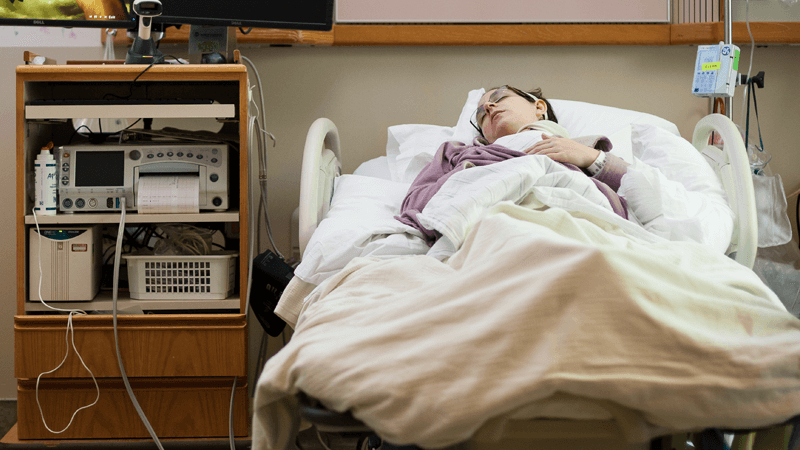Doctors and nurses will be encouraged to ask dying patients about their ‘religious preferences’ – under new guidance for the NHS.
The National Institute for Health and Care Excellence (NICE) called for NHS staff to do more to ensure that the individual preferences of patients are addressed.
The new guidance comes after an audit of deaths in England revealed that the spiritual preferences of patients who could be communicated with before dying were recorded in only one in seven cases.
Praised
Sam Ahmedzai, Emeritus Professor of Palliative Medicine and a specialist member of the NICE quality standard committee, said that good end-of-life care should include “asking about the dying person’s spiritual, cultural, religious and social preferences”.
“Only by attending to these issues and concerns can we deliver truly individualised care for each person and those important to them,” he added.
The new approach has been praised by the National Council for Palliative Care (NCPC).
‘Will help’
Claire Henry, Chief Executive of the NCPC, said: “This standard for the care of dying adults will help people nearing death to receive the care they deserve.”
The Revd Dr Malcolm Brown, Church of England Director of Mission and Public Affairs, also welcomed the move.
He said: “People’s views and needs can change radically as the inevitability of death approaches and dying can be eased considerably if careful opportunities to express or discuss these matters are created.”
Religious liberty
In 2009, the NHS was forced to back down after suspending a Christian nurse from her job after she offered to pray for a patient.
Somerset nurse Caroline Petrie was suspended without pay and summoned to an hour-long disciplinary meeting.
Following a media outcry and heavy criticism, NHS North Somerset issued a statement saying it had contacted Mrs Petrie and hoped she could return to work “as soon as possible”.
The case was seen as a victory for the religious liberty of Christian healthcare professionals.
World’s best
In 2015, the UK was named as the world leader in end-of-life care, according to a wide-ranging study of 80 countries.
The Quality of Death Index, by the Economist Intelligence Unit (EIU), scored the UK 93.9 out of 100 ahead of Australia with 91.6 and New Zealand, ranked third with 87.6.
Researchers interviewed over 120 palliative care experts from around the world, and they assessed a range of criteria, including staffing levels and affordability and quality of care.


